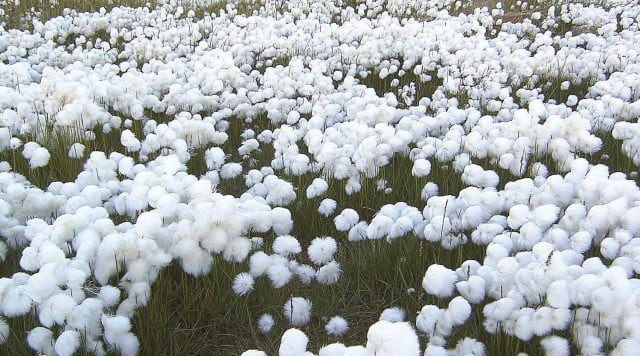'Sustainable policy for cotton a necessity'
Agriculturalists lament lack of clear direction, water scarcity, and poor seed quality

Agriculturalists and researchers have called for a sustainable policy for cotton crops, which have suffered continuous setbacks in recent years despite being a cornerstone of Pakistan's agricultural economy. Cotton plays a pivotal role in sustaining millions of livelihoods, powering the textile industry, driving exports, and generating valuable foreign exchange.
They highlighted a range of challenges, from water scarcity and climate change to the use of uncertified seeds, inadequate research funding, and market volatility, which have severely undermined its performance. The most pressing issue still remains the lack of a clear policy regarding cotton enhancement.
Highlighting the critical role of research in agricultural advancement, they advocated for greater financial autonomy and institutional empowerment of research organisations. These bodies must be at the forefront of developing high-yielding, pest-resistant, and climate-resilient cotton varieties.
All cotton-related policy decisions and consultative processes must be spearheaded by research institutions rather than non-research entities. Only those grounded in empirical data and field realities can offer actionable, evidence-based recommendations.
The revival of cotton is not just a matter of agricultural concern, it is intrinsically tied to Pakistan's economic stability, trade balance, and rural development. The time has come to treat it as a national emergency and introduce an integrated, forward-looking cotton policy without delay.
The Trading Corporation of Pakistan (TCP) could be entrusted with a proactive role, including a procurement target of at least 1.5 million bales annually, to help bring greater stability to the cotton market. They urged the promotion of water-efficient cropping patterns within cotton zones, and emphasised the need to ensure the consistent availability of canal water to these regions.
Speaking to The Express Tribune, Sajid Mahmood, Head of the Technology Transfer Department at the Central Cotton Research Institute (CCRI) Multan said, "The persistent decline in Pakistan's cotton production is primarily rooted in the absence of a comprehensive and long-term cotton policy. A fully-fledged policy is the key to unlock its revival. Without it, farmers are left in a state of uncertainty, and the cotton sector cannot move forward."
He noted that in comparison to crops like sugarcane, rice, and maize, which benefit from institutional support, guaranteed pricing, and reliable market access, cotton farmers face delays in pricing, have limited access to certified seeds, and insufficient crop protection solutions.
Mahmood remarked that a scientifically-determined support price should be considered at the earliest opportunity, as it would help ensure farmer profitability, cover input costs, and shield growers from climate-induced risks. A review of the 18% sales tax on cotton might contribute to lowering production costs and enhancing the crop's competitiveness.
Progressive farmer and agriculturist from Sanghar Malik Imtiazul Haq Awan said that until fair distribution of water is ensured, no crop will grow properly and produce useful results. Most officials from the Sindh Irrigation Department, from supervisors to engineers, are involved in rampant corruption.






















COMMENTS
Comments are moderated and generally will be posted if they are on-topic and not abusive.
For more information, please see our Comments FAQ